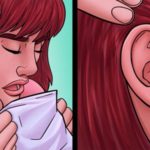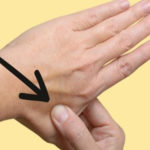Motion Sickness: Understanding the Causes and Effective Strategies for Relief
Motion sickness occurs in some individuals due to a conflict of signals sent to the brain or overstimulation of the vestibular system. When the body is in motion, various signals are transmitted to the brain. In a moving vehicle, these signals can conflict, leading the brain to perceive the body as being in a dangerous situation.
As a result, the body may react with symptoms such as restlessness, anxiety, increased sweating, pale skin, rapid breathing, nausea, vomiting, gastrointestinal distress, dizziness, and headaches.
Certain factors can also increase the likelihood of motion sickness, such as confined spaces, cigarette smoke, and the smell of gasoline or vehicle emissions. Individuals with vestibular disorders, pregnant women or those on contraceptive pills, and children are more susceptible to motion sickness.
 Motion sickness occurs when the vestibular system is overstimulated. (Illustrative image)
Motion sickness occurs when the vestibular system is overstimulated. (Illustrative image)
To mitigate motion sickness, doctors recommend several strategies, including avoiding excessive hunger or fullness, ensuring adequate sleep before traveling, and maintaining a calm mental state.
If possible, sleeping during the journey can help alleviate symptoms. Eating light and bland foods, drinking water, and avoiding alcoholic beverages are also advisable. Consuming fruits like oranges, biscuits, bread, dried fruits, or nuts can further reduce the chances of motion sickness.
Aromatherapy with orange or ginger essential oils and drinking ginger tea can help mask the smell of gasoline. Sufferers should aim to sit by the window or towards the front of the vehicle, focusing their gaze on the horizon to synchronize visual and vestibular signals, thus reducing motion sickness.
It is crucial to refrain from reading or looking at electronic devices while in motion. Medications such as antihistamines (e.g., diphenhydramine, promethazine, meclizine) and anticholinergics (available in pill or transdermal patch form) can also be effective in preventing and managing motion sickness.
According to VTC News
13 Instant Motion Sickness Remedies That Work Like Magic
Are you tired of that nauseating feeling that comes with motion sickness? Well, you’re not alone. Motion sickness is a common affliction that can ruin your travels. But fear not! There are 13 easy and drug-free ways to combat motion sickness. Stay tuned to discover these effective remedies and say goodbye to that queasy feeling!





































